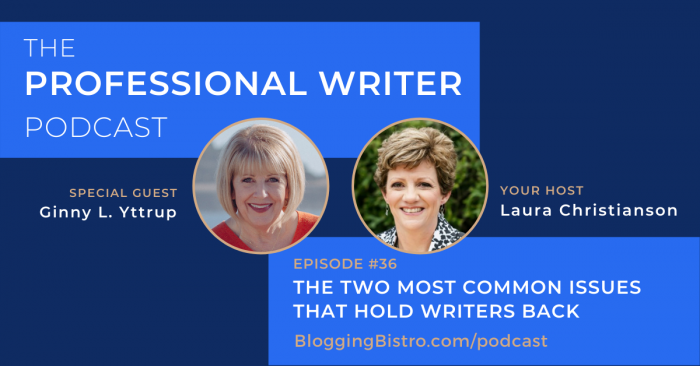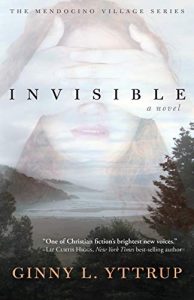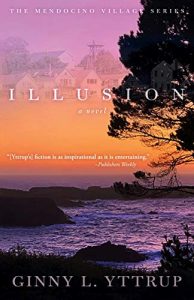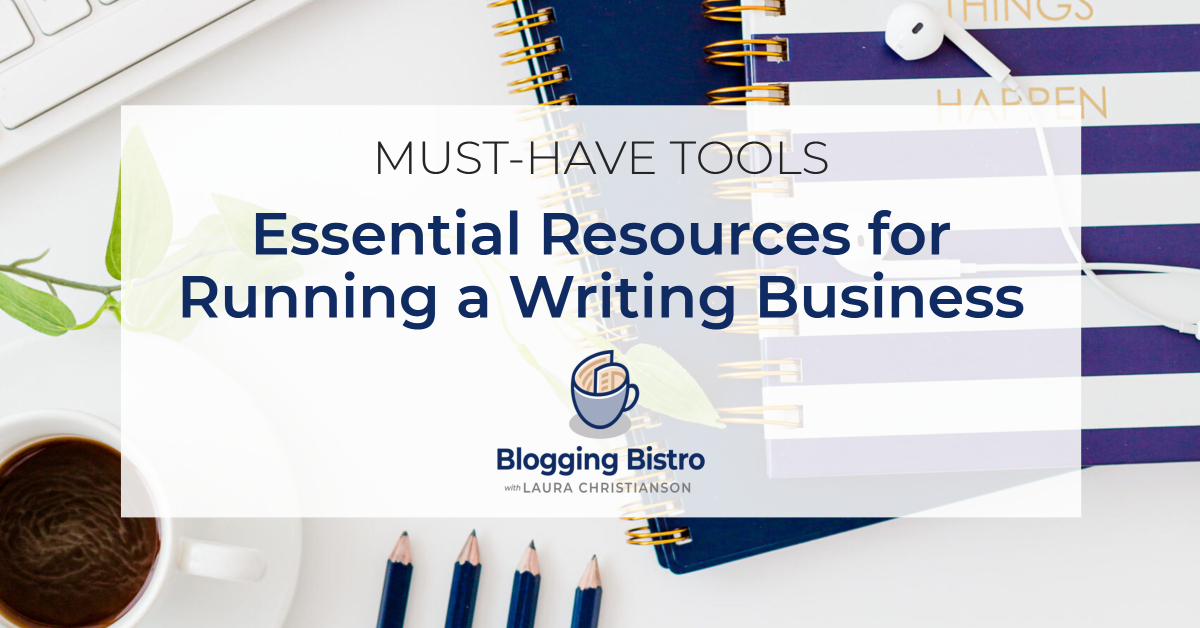36 – Two Issues That Hold Writers Back, with Ginny L. Yttrup
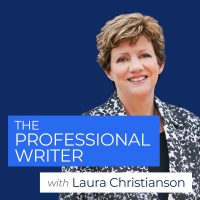
“Writing is really hard work for me. In the midst of it I often find myself stymied. Blocked. Confused. Wanting to do anything but write.”
—Ginny L. Yttrup
Those words are from a professional writer with 25 years of experience!
If you’ve ever experienced the slow tedium of writing – if you’ve ever felt like giving up – my interview with Ginny L. Yttrup is a must-listen. A non-fiction writer who mastered the art of penning fiction, Ginny is also an experienced writing coach.
During Episode #36, Ginny helps us come to grips with the two most common areas where writers get stuck, and puts us on track to get unstuck.
If you prefer to read, a transcript is at the bottom of this page.
About Ginny L. Yttrup
 Ginny is the author of seven contemporary, issue-driven novels, including her Christy Award winning novel, Words. As a writing coach at Words for Writers, Ginny is passionate about helping both fiction and nonfiction writers discover and put words to the messages their lives have written.
Ginny is the author of seven contemporary, issue-driven novels, including her Christy Award winning novel, Words. As a writing coach at Words for Writers, Ginny is passionate about helping both fiction and nonfiction writers discover and put words to the messages their lives have written.
Ginny lives in Northern California with her rescue pup, Henry, and loves spending time with her adult children and the circle of friends who enrich her life.
Visit Ginny
WordsForWriters.net (coaching, manuscript critiques, and developmental edits)
GinnyYttrup.com (author website)
The Mendocino Village Series
Invisible (book 1)
Illusion (book 2) – released October 20, 2020
Four women in love. Four fractured romances. Through their friendships with one another will they uncover the illusion that’s keeping them from their hearts’ desires?
Discount Code for Your Novel Map
Your Novel Map takes writers through all the elements necessary to create a structurally sound and satisfying novel:
- Genre
- Title
- Theme
- Hook
- Character Development and Arcs
- Point of View
- Story Arc
- Novel Structure
- A Satisfying Ending
Ginny’s digital map is built on a Trello board that gives writers an interactive space to track the elements of their novel.
Use discount code PWPODCAST when ordering and access Your Novel Map for only $39.95.
Recommended Resource
Plot & Structure, by James Scott Bell (Ginny’s go-to guide when she was learning the art of writing fiction)
How to Keep Up With the Show
Click here to join my my email list and I’ll notify you about every episode. (When you subscribe, you’ll also get my free guide, Essential Resources for Running a Writing Business.)
Join The Professional Writer Podcast Community (private Facebook group), where we discuss what we’re learning, meet our guests, and encourage one another on our writing journeys.
If you know a writer who would be interested in The Professional Writer Podcast, please share this link with them:
https://bloggingbistro.com/podcast
Thank you!
Laura
Read the Transcript
The Two Most Common Issues That Hold Writers Back, with Ginny L. YttrupLaura: Today we are going to be talking about her topic that really interests me: the two most common issues that hold writers back. Have you ever felt held back in your writing like, “I can’t move forward… I just don’t know what the next steps to take are.”
Joining me today to help walk us through that is my friend, Ginny Yttrup.
Ginny: Hi there, thanks for having me.
Laura: I’m just taking a wild stab here that people often pronounce and or spell your name incorrectly, so let’s get that out of the way right up front!
Ginny: Ginny is short for Virginia and it’s g-i-n-n -y and Yttrup is y-t-t-r-u-p and it’s impossible! To hear it, it makes sense, but just to look at, it’s a little crazy.
Laura: Ginny and I have been getting to know each other over the last year-and-a-half because she overtook my former role as marketing director of West Coast Christian Writers. Ginny and I have had the chance work very closely together over this last year and what a delight that’s been! Ginny, you are so organized and you just have this calm spirit about you that keeps everybody on an even keel. I really appreciate that about you.
Ginny: Thank you; I am learning so much from you through this process about marketing and organization. You are organized. I’m learning a lot and really loving the process.
Laura: I have been told that organizational part of my brain takes over the creative part of my brain.
Ginny: I’m the opposite, so the organizational piece is the discipline I’ve had to learn and have to really focus on and employ. The creativity comes a little more naturally.
Laura: Just the opposite for me, Ginny. I am learning that I need to be patient with the creative minds out there. I can’t necessarily dot all my I’s and cross all my T’s and do things exactly the way it’s “supposed” to be because these creatives that I work with come up with creative ideas midstream. When I actually do stop that analytical part of my brain and I think about the creative stuff, I know they’re right. I go kicking and screaming, but it is good. Anytime a person involved in a writing-related profession can work with a team — even if it’s a team of two people — and one of you is a creative and one of you is an analytical, organized type, that’s a really good (or it can be explosive combo in a bad way). As business people, we need both. We need to be creative and we need to be organized.
Ginny is the author of 7 contemporary issue-driven novels, including Words. That was my first introduction to you, Ginny. I had never heard of you before and when I read that book, I thought, “This girl can write!”
Ginny is also a writing coach at Words for Writers. I like the way you tied those to the title of the book, Words. Was that intentional?
Ginny: Yes. I am intentional and passionate about helping both fiction and nonfiction writers to discover and put words to the messages their lives have written.
Laura: We’ll be talking about this a little bit later on in the episode but I’ll give you a tiny little preview. It’s a guide through the essential elements of a novel and we are going to be giving you a discount code at the end of the episode that is exclusively for listeners of The Professional Writer podcast, so stay tuned clear to the end of the episode when we will be giving you that discount code and telling you more about Your Novel Map.
We are going to be focusing today on your role as a writing coach. If you want to find out more about Ginny’s writing coach services you would go to wordsforwriters.net. I wanted to start by asking you a little bit about your writing career because you are writing books and you are a writing coach. Which came first, the chicken or the egg? Were you doing book writing first or coaching writing or did those things happen simultaneously?
Ginny: I was writing first. I have been writing for more than 25 years. I started out as a nonfiction writer and was first published in nonfiction and absolutely loved nonfiction. I still probably read more non-fiction than fiction, although I read a lot of fiction.
Seventeen years into my career, my first published book ended up being a novel. Once that book was published, that sort of set me on the course for writing fiction, which I had always loved. I just couldn’t imagine how novelists put a novel together. It was completely unimaginable. I ended up learning that process and as a coach I work with both nonfiction and fiction writers because I have done both but yes, the writing definitely came first and it’s what informs my work as a coach.
Laura: How did you educate yourself about fiction writing to the point where you actually had a novel published?
Ginny: It was an ugly process. I don’t recommend it. I had published a lot of magazine articles and devotionals as I said, nonfiction, and had been praying for several years about a nonfiction book idea. I put together several non-fiction proposals and they were all rejected and then a novel idea came to mind and I was very resistant. I finally sat down and wrote — not even the first chapter but maybe the first scene, and I sent it off to a dear friend who is a fiction editor and said, “What do you think of this? Should I pursue this?”
She wrote back and strongly encouraged me. So I started to write and in my seat-of-the-pants fashion, just kept writing. Then a chapter or two or three into it, I realized that in the 17 years that I had been studying writing and been attending writing conferences, I had never taken a fiction course! I had no idea what do, so I had to pause. I bought the book Plot & Structure, by James Scott Bell, read it cover-to-cover several times and began really studying novels.
It took me four years to write Words and to learn that process. That’s why it took so long, because I was learning as I went along.
Laura: It sounds as if you had done a lot of non-fiction writing up to that point so you were skilled in the essentials of writing.
Ginny: It was learning how to apply non-fiction techniques to writing fiction that was the challenge. It was learning the structure of a novel, learning how to show rather than tell (which you do with non-fiction but moreso in fiction). There was just so much to learn but anybody can learn it. I’m confident of that. It’s a learned skill.
Laura: Congratulations on mastering the art of writing fiction. Since then, you’ve had how many novels published?
Ginny: My 7th novel releases October 20, 2020l. It is titled Illusion and it’s the second book in the The Mendocino Village series.
Laura: What is the title of the first book, because I always have to start with book number one and then read the next one in the series.
Ginny: The first one is Invisible and then Illusion. They are issue-driven fiction. My protagonist is an overweight woman who did not believe that she was eligible for love based on her dress size. This follows her story and the cast of characters that surround her so she has some new insights and growth that take place in the second book.
Laura: You have told me that you had a little bit of a love-hate relationship with writing story. What are some of the things you love and hate about writing story?
Ginny: Let’s start with what I hate. That is a strong word. There are some writers who the words just flow and the story ideas come. For me, it’s hard work. In the midst of it, I often find myself stymied. Blocked. Confused. Wanting to do anything but write, which hampers my focus and my progress. It’s a slow, tedious process for me. There are moments when I love it but I often say I love having written rather than I love writing.
When I finish a book and I hold that book in my hands and I begin hearing from readers, I love having written that book. But the actual process can be grueling. So that’s the hate part.
I love developing the setting and developing characters. I love thinking it through… I could think it through forever. The actual writing getting down to the writing, staring at the blank page, getting the words on the page in a way that they’re appealing and they engage — that’s the hard work.
Laura: How about deadlines? Do you like working under a deadline?
Ginny: I like working under a deadline. I almost need that to get the adrenaline going and push me forward. They’re effective. I can be extremely motivated when that deadline is looming very near. Definitely the non-fiction writing and those deadlines prepared me for the novel writing.
Laura: you been talking a bit about your love/hate relationship with writing and I think all of us have a little bit of that going on. How do you work with writers in the coaching part of your business to help them get over some of these common hurdles that hold them back?
Ginny: Thank you for the opportunity to talk about coaching because I absolutely love it. I love working with writers and my own journey to publication with books was very long and it included a lot of frustration and a lot of rejection. There were years where I wanted to give up. I didn’t understand. I just I thought it was ridiculous, honestly. And now that I’m on the other side of it, working with writers, I have such a deep understanding of what it feels like to pursue something with your whole heart and then to be rejected and/or the challenges that come in having an idea presented itself and then translating it in a way that will engage readers and keep them turning pages. My years and years of experience — a lot of it, frustrating — has given me compassion and something to offer writers in the midst of their own frustration.
I can honestly look back and say that I am so thankful for the long, winding road to publication. During that time I had to figure out what was holding me back. As I have worked with writers and observed their process and now have over a decade of experience coaching, the two elements or the two processes where they get stuck is a lack of confidence and a lack of focus.
The lack of confidence comes in many ways just to say a lack of confidence is a rather broad statement but I see it when a writer compares herself to another writer, which happens so often. When we do that, we rob ourselves of the unique gifts that that we have and we put the brakes on what we’re doing.
Besides the comparison factor, we aren’t confident that we know enough. We aren’t confident that we have done enough work. We don’t feel that our work is as good as that New York Times best seller’s work. It comes out in many ways.
The power or coaching or relationship, whether it’s a mentor or a critique group, is having someone look at your work objectively and say, “This is really good,” and/or, “This is part of this is a great and you have the ability to make it even better.”
To come alongside a writer who is struggling with confidence issues and be able to encourage them and bolster them and gently encourage them in the areas where they can still grow — I love that process. I am so grateful for the people who came alongside me as I was learning so I really respect the value of that type of relationship.
Lack of focus. I see that so often, especially in myself. That is something I’ve had to learn some tricks to help myself hone in on a project. A lot of that lack of focus comes in our mindset. It comes in caving in to fear we’d rather sometimes be doing anything but writing because we were afraid and so when we give into that we clean the bathroom, weed the garden. We do everything except for writing.
The lack of confidence and the lack of focus both narrow down to fear. We’re afraid we aren’t enough. We’re afraid we won’t do it well enough and so we back off.
Laura: What is one tip that you could provide for a writer who is feeling fearful?
Ginny: One of the things that falls into the fear category and can derail your focus is perfectionism. If you can identify perfectionism in your own process… if you are striving, if you are working so hard to make something so good because you’re afraid that it’s not going to be good enough — if you can identify perfectionism and begin letting go of that fear, it will free up your writing immensely.
Identifying those mindsets is really important and that’s where working with a coach is really valuable, because we don’t always identify our own weaknesses or fears. We shut down before we let ourselves go that far.
Laura: I was listening to a podcast the other day and the person who was the host is a very well-known business coach. Something that that person said struck a chord with me. They said between 80 and 90% of the things that hold us back in business is mindset. It is so much about the mindset shift, which is the reason I started The Professional Writer podcast in the first place. Like you, I have a heart for helping people in this business to conquer those fears that hold us back and to realize I can do this and there is a step-by-step process I can learn that is going to move me forward as a business owner.
I definitely view it as this (writing) as being an entrepreneur. You are running a startup business. You are a business owner. A lot of the writers that I have met tend to view it more as, “Well, I’ll just kind of dabble in this a little bit.”
And that’s okay for starters. But if you’re serious about it, you can’t really be a dabbler; you have to take a big leap of faith and make a commitment to improving yourself. I think that people like Ginny can help us get over those mindset hurdles.
Ginny: I hope so, because I agree with you. In fact, I’ve started a blog series on identifying mindsets – perfectionism, procrastination, blame. When we are willing to identify those mindsets and make changes, we actually have the power to change the neural pathways in our brains and change our habits by changing the way we think. Then our actions change. It has such a huge impact on our careers. For creatives, that’s often something that we aren’t thinking about. We think we don’t like it. We aren’t geared for it. When really, business is such a creative opportunity.
Laura: I am ready to hire you right now, Ginny! It’s like a warm blanket of comfort around me. Tell us a little bit about Your Novel Map and the discount code especially for my listeners.
Ginny: This is a tool that I developed because writing a novel — learning the process — is challenging, as I discovered. I’ve identified four lanes of learning when writing fiction and you need to travel in all four lanes and they each will lead to the destination of an engaging novel that your readers will enjoy. But they take a lot of time. I was looking at that process, trying to figure out how can I shorten that for writers. The one area I saw to provide writers a shortcut was all of the elements that go into the novel. So I created a checklist. It’s interactive. It’s a place to record details but what it really does is map out a novel for a writer. It takes them from literally the dedication page one all the way to that satisfying ending, and lays out everything in between. How to write a hook… what does your first chapter need to include… what elements are in that first chapter… the structure of the novel… creating characters… point of view… character arcs… story arcs… it acts as a checklist. It includes teaching. It’s created on a Trello board so writers can go in and add all of their own details to the map so they have a complete record of what they’ve done. For those who are planners and plotters, it’s a plotting tool.
I had a lot of fun with it and I’m getting wonderful feedback.
Laura: How can my listeners get ahold of Your Novel Map?
Ginny: It’s on my website wordsforwriters.net. It’s in the main menu you’ll see it and there’s a video that walks you through a little bit of the map and the elements that it covers.
We have a discount code specifically for listeners of The Professional Writer podcast. You can access the map for $39.95 US dollars using the code PWPODCAST — all one word. That’s a discount of $10 off the regular price.
Laura: That’s very generous and thoughtful of you, Ginny. Thank you, Ginny for joining us today. I have learned a ton from you. I really encourage authors to take advantage of your coaching services. It sounds like that would be really beneficial for people. Ginny, you are a member of The Professional Writer Podcast Community Facebook group. Listeners, if you would like to meet Ginny face-to-face or word-to-word, Ginny is a member of the group. You will find a link to join the community in the show notes for today’s episode.

